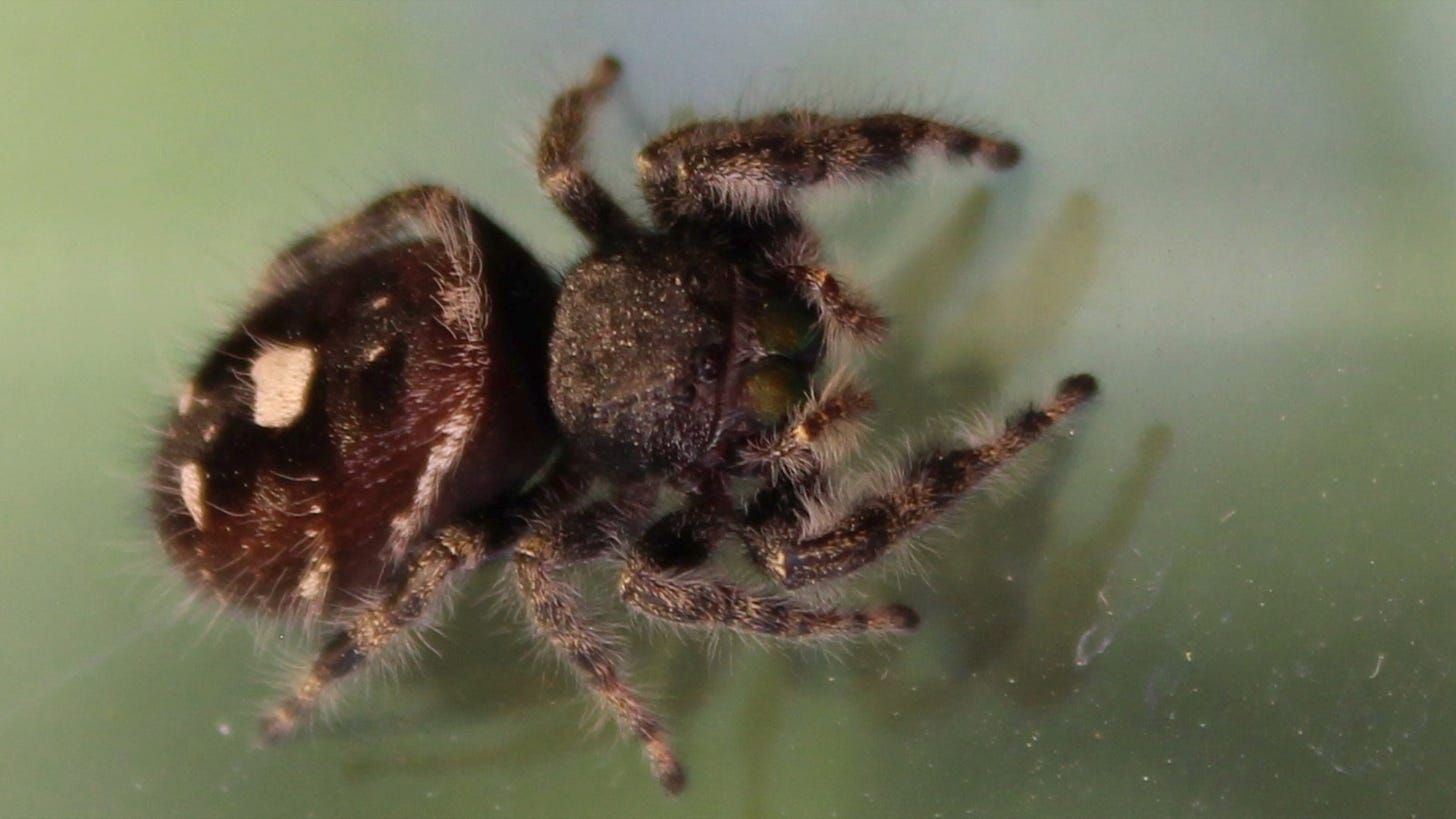1
Nociception is the immediate sense of noxious stimuli. Noci- is taken from noxi-ous, and -ception is like perception. This word is used to distinguish from “pain”, which gets defined as the conscious experience that the brain feels after the fact. Nociception is the detection of the harmful stimulus, and pain is the emotion response to that detection. Nociception is the recoil from a hot stove; pain is the suffering and anguish afterwards.
Humans often attribute to non-human organisms nociception but not pain. It’s convenient for our moral scorekeeping. In our evolutionary history we haven’t always had the luxury of prioritizing the reduction of suffering in other species. The truth is we don’t know what it is like for a fish or a cephalopod to feel pain and it will continue to be a challenge for our imaginations.
Many people do recognize pain in other species. If you’ve ever gotten to know a dog or a cat, it’s relatively easy to understand that they feel pain.
Pain is useful because it brings our attention to things that have capacity to cause us harm, whether chemical, temperature-related, other organisms, etc.. Having a set of emotions around noxious stimuli is convenient for when we simulate in our imagination, tell stories, and predict harm.
2
I took this vocab word from Sean Carrol’s interview of Ed Yong about his new book An Immense World: How Animal Senses Reveal the Hidden Realms Around Us1. Another good vocab word from that discussion is one that I first read in Are We Smart Enough to Know How Smart Animals Are by Frans de Waal2.
Umwelt is the world as it is experienced by a particular organism. What is it like to be a bat? We have different sense receptors and neurology for interpreting senses, which gives us reason to think the subjective experience is different. How does it all get stitched together into a world model and how does it guide behavior? Shrimp are on a different trip than dogs.
Existing as an octopus seems incredibly alien, with distributed neural systems in their arms which have taste receptors and independent movement planning and control.
Jumping spiders have pairs of eyes for different visual tasks. Their center pair does sharp detail vision and their lateral pair does movement detection. What the hell is that visual experience like? There must be some back and forth guidance between motion being detected and directing the gaze of the sharp detail eyes.
The jumping spider can also detect the wind of a fly precisely enough to jump into the air and catch it. A cricket can sense the wind of a charging spider. Humans can feel a breeze blowing, but air currents are pretty low-priority in our sense stack unless we are hunting or farting.
Manatees and seals have whiskers that allow them to detect a trail of turbulent water left behind by a fish, which they can follow. They’re navigating through a water medium by feeling in their face.
Shorebirds can jab their bill into the sand, sending pressure waves through it, and detect wave deflections to sense objects beyond the reach of their bill.
There are fish that produce their own electric field and sense field distortions like an extended form of touch, about an inch beyond the surface of the skin. What is it like to sense electrical conductivity and capacitance like we might sense brightness or volume? They use those same electrical pulses to communicate to other fish, blurring the line between communication and perception.
3
Towards the end of the interview the question was asked whether there was any science-fiction out there that had electro perception and had developed better language for it. The book that came to my mind is one of my all-time favorites A Deepness in the Sky by Vernor Vinge3. Without spoiling the story, there is a nanobot technology that allows the protagonist to sense space very differently.
The aliens in that story are referred to as "spiders". They aren't actually spiders but that's the closest thing the human characters can relate them to. The story is told partially through the perspective of the spiders so there is language oriented to their world and senses.


